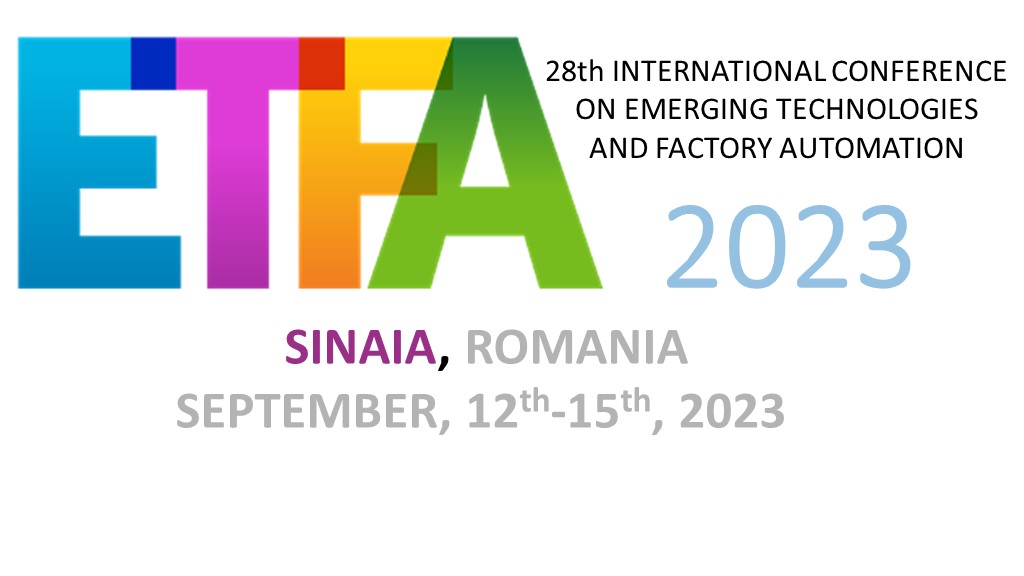ETFA 2023 Keynote Speakers
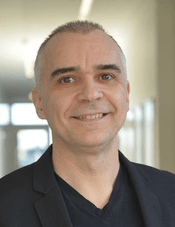
Prof. Josep M. Guerrero
Denmark
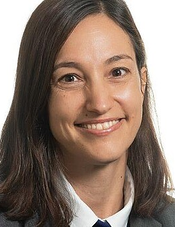
Prof. Margret Bauer
Germany
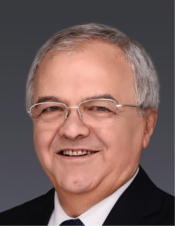
Prof. Okyay Kaynak
Turkey
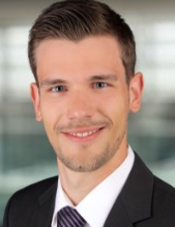
Dr. Florian Patzer
Germany
Keynote by Prof. Josep M. Guerrero
Brain Models and Neuroscience Inspired Artificial Intelligence for Biological and Energy Space Microgrids |
|---|
This talk will begin by introducing the control of microgrids, the parallelisms with the human brain and the research for possible sources of inspiration in the last frontiers of neuroscience. Then, control in electric power systems of satellites and space platforms will be presented, showing approaches that are extended from terrestrial microgrids and explaining the differences and challenges when it comes to apply them out in space. Further, multi-microgrid systems will be discussed for moon craters in future lunar manmade bases. Finally, the extension from the hierarchical control of microgrids to bioastronautics in the control of closed ecological systems to support with oxygen, water, and food to the astronauts and thus creating new ecosystems for the moon and future mars bases.
About Prof. Josep M. Guerrero |
|---|
Josep M. Guerrero (S'01-M'04-SM'08-FM'15) received the B.Sc. degree in telecommunications engineering, the M.Sc. degree in electronics engineering, and the Ph.D. degree in power electronics from the Technical University of Catalonia, Barcelona, in 1997, 2000 and 2003, respectively. In 2022 he received the M.Sc. Degree in Psychobiology and Cognitive Neuroscience at the Autonomous University of Barcelona.
Since 2011, he has been a Full Professor with AAU Energy, Aalborg University, Denmark, where he is responsible for the Microgrid Research Program. From 2019, he became a Villum Investigator by The Villum Fonden, which supports the Center for Research on Microgrids (CROM) at Aalborg University, being Prof. Guerrero the founder and Director of the same center.
His research interests are oriented to different microgrid frameworks in applications like microgrid clusters, IoT-based and digital twins, cybersecurity, maritime microgrids for electrical ships, vessels, ferries and seaports, space microgrids applied to nanosatellites and closed bioecological systems, and smart medical systems. Prof. Guerrero is an Associate Editor for a number of IEEE TRANSACTIONS. He has published more than 900 journal papers in the fields of microgrids and renewable energy systems, which are cited more than 90,000 times. During nine consecutive years, from 2014 to 2022, he was awarded by Clarivate Analytics (former Thomson Reuters) as Highly Cited Researcher. In 2021, he received the IEEE Bimal Bose Award for Industrial Electronics Applications in Energy Systems, for his pioneering contributions to renewable energy based microgrids. In 2022, he received the IEEE PES Douglas M. Staszesky Distribution Automation Award, for contributions to making the hierarchical control of microgrid systems a practical reality.
Keynote by Prof. Margret Bauer
Beyond the hype: Useful aspects of AI, Industrie 4.0 and the Digital Twin |
|---|
Process control is a well-established discipline. It also lies at the foundation of solving today's climate change challenges. Why is it then that process control struggles to find attention and - more importantly - to attract researchers, experts and practitioners at all levels? There are fewer and less educated process control engineers today, despite an apparent need for them. In this context, recent developments in data analytics, artificial intelligence and digital twins are reviewed relating to their industrial. It is argued that developing novel solutions that are useful in industry requires a focus on process control fundamentals. This is explained using the concrete example of plant-wide disturbance analysis and asset management. In these examples, process control needs have to be understood before we can revisit architectures and standards that will solve tomorrow's problems.
About Prof. Margret Bauer |
|---|
Prof. Margret Bauer received her undergraduate degree in electrical engineering from the University of Erlangen-Nuremberg in 2001. She was a graduate trainee in sales and marketing for Infineon Technologies in Munich and Stockholm before embarking on her PhD studies at the Centre of Process Systems Engineering (CPSE) under the guidance of Nina F. Thornhill in London, UK, which she completed in 2005. Her work on data-driven analysis received the NAMUR award for the best PhD thesis in the process industries. in 2006 she was a postdoctoral student at the University of Pretoria, South Africa, and a Claude-Leon-Foundation Fellow for conducting work on advanced process control. Margret has gained experience in industrial automation while working at the ABB Corporate Research Centre in Ladenburg, Germany, from 2007 to 2015 where she worked on advanced data analytics topics in the chemical, metals and minerals and mining industry. Before joining HAW Hamburg in May 2020 Margret was an Associate Professor at the University of Johannesburg, South Africa, and an Extraordinary Professor at the University of Pretoria. For the period 2021-23 Margret is the Lise-Meitner-Professor at the Department of Automatic Control at Lund University, Sweden.
Keynote by Prof. Okyay Kaynak - CANCELED
Metaverse: What, When and How? |
|---|
What: There are many definitions, the simplest definition is the space that results from merging the physical and cyberspace. The terminology has been around us as a buzzword since the late 2020s. Compared with when it was first coined in 1992 in the science fiction "Snow Crash", there have been significant changes in its meanings due to technology breakthroughs and the resulting socio-economic transformations. The essential concept of the metaverse lies in creating and living in a higher-dimensional world/space that transcends our physical world. Such a higher-dimensional world is a digital world directed toward the symbiosis of reality and virtuality.
When: Metaverse is already flourishing in gaming as a social platform where multiple people can play on the same platform, immersed in the metaverse. The next application domain will likely be the industry where digital twins are increasingly used. One of the most inspiring parts of the industrial metaverse lies in the potential to restructure the industrial chain and provide added value to all the stakeholders therein. It can be considered as the evolution of industrial Cyber-Physical Systems.
How: It is to be admitted that reaching its maturity is likely to take some time. On a philosophical note, we, and the next generations, will therefore act as the steersmen and the sailors on the long and exciting journey to Nepantla, the liminal space, the in-between the cyber-space and the physical space, and the borderlands from which novel insights and inspirations are likely to emerge.
About Prof. Okyay Kaynak - CANCELED |
|---|
Prof. Okyay Kaynak received the B.Sc. degree with first-class honors and Ph.D. degrees in electronic and electrical engineering from the University of Birmingham, UK, in 1969 and 1972, respectively. From 1972 to 1979, he held various positions within the industry. In 1979, he joined the Department of Electrical and Electronics Engineering, Bogazici University, Istanbul, Turkey, where he is currently a Professor Emeritus. He has held long-term (near to or more than a year) Visiting Professor/Scholar positions at various institutions in Japan, Germany, the U.S., Singapore, and China. His current research interests are in the broad field of intelligent systems. He has authored three books, edited five, and authored or co-authored more than 500 papers that have appeared in various journals and conference proceedings. Dr. Kaynak presently serves as the Founding Editor-in-Chief of Springer journal Discover Artificial Intelligence. Additionally, he is on the Editorial or Advisory Boards of several scholarly journals. He has received the Chinese Government Friendship Award, Humboldt Research Prize, Doctor Honoris Causa, Obuda University, Hungary (2020) and the Academy Prize of the Turkish Academy of Sciences (2020). He is a member of this Academy.
Keynote by Dr. Florian Patzer
Sustainable smart manufacturing with Catena-X |
|---|
Anyone who is even remotely involved in the automotive industry currently has no choice but to look at Catena-X. The expectations are enormous, and so are the possibilities. This talk will give you an insight into the world of this large-scale innovation project funded by the German Ministry of Economics and Climate Action. After this talk you will know what Catena-X is, what it is not, what architectural, technological and societal challenges Catena-X faces and where the limits of practical feasibility lie.
The talk will give an overview upon the different use cases of Catena-X and will explore their solutions, from small interfaces to the paradigm of network of networks, using the example of Manufacturing as a Service (MaaS). Moreover, the MaaS use case will be presented in more detail, showing how resilience and sustainability requirements can be implemented in modern open manufacturing ecosystems.
About Dr. Florian Patzer |
|---|
Florian Patzer began his career in 2005 as an IT systems electronics technician at Siemens. In 2011, he received a state-certified engineer degree in computer science from Rudolf-Diesel-Fachschule. In 2014, he received the B.Sc. degree and in 2016 the M.Sc. degree, both in computer science from the Karlsruhe Institute of Technology (KIT). Since 2016, he worked as a cybersecurity researcher at Fraunhofer Institute for Optronics, System Technologies and Image Exploitation (IOSB) in Karlsruhe, Germany. In 2021, he received his Ph.D. degree in computer science from KIT, for his work on automated security analysis and incident response for industrial systems. Since 2021, he works as senior scientist at Fraunhofer IOSB where he is responsible for research topics related to digitalization and information management for resource efficiency and circular economy. He also leads the development of the digital ecosystem architecture "Smart Factory Web". In addition, he is the leading architect for the Manufacturing as a Service (MaaS) business domain in the large-scale automotive innovation project Catena-X. In addition, he is the leading architect for the Manufacturing as a Service (MaaS) business domain in the large-scale automotive innovation project Catena-X.

